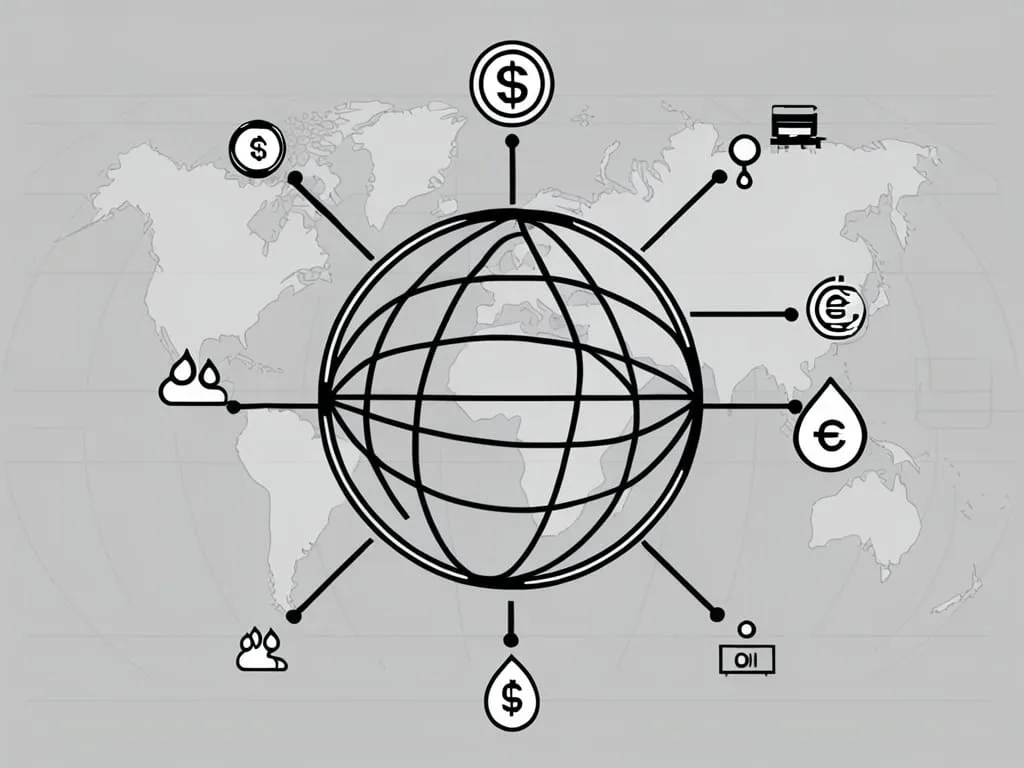In the intricate web of global finance, several cities stand out as the nerve centers that drive the world economy. These financial hubs are more than just geographical locations; they are dynamic ecosystems where capital flows, investments thrive, and economic decisions have far-reaching consequences. Let’s delve into the unique roles and influences of six global financial hubs that are shaping the world economy.
New York City, often referred to as the financial capital of the world, is home to the iconic Wall Street. Here, the New York Stock Exchange (NYSE) and Nasdaq serve as the epicenter of global finance, hosting some of the world’s most influential financial institutions. The city’s financial district is a bustling hive of activity, where giants in investment banking, hedge funds, and other financial entities converge to set global market trends. The influence of Wall Street extends beyond American shores, with its decisions and market movements having a ripple effect on economies worldwide.
Across the Atlantic, London has long been a stalwart of global finance, but it has faced significant challenges in recent years. The impact of Brexit on the City of London has been profound, with over 440 firms in banking and finance relocating or planning to relocate parts of their operations to the EU. This exodus has underscored the uncertainty and instability that Brexit has introduced into the European financial landscape. Despite these challenges, London remains a major center for international banking, with institutions like the Bank of England continuing to shape monetary policies. However, the city’s status as a global financial hub is now more precarious than ever, as rival financial centers in Europe vie for the business that is leaving the UK.
In the East, Hong Kong stands as a critical gateway between Western and Eastern economies. Its strategic location, robust legal framework, and advanced financial infrastructure make it an attractive hub for multinational corporations and investors. The Hong Kong Stock Exchange (HKEX) is a pivotal player in this ecosystem, facilitating seamless trade and investment between East and West. Hong Kong’s role is not just about connecting markets; it is also about fostering innovation and technological advancement. The city has emerged as a hub for fintech, biotech, and other cutting-edge industries, drawing top talent and investment from around the globe.
Singapore, another rising star in the financial world, has quickly become a key player in Asia. Known for its stability, innovation, and business-friendly environment, Singapore attracts a wide range of financial institutions and multinational corporations. The city-state is particularly notable for its rapid ascent as a fintech and cryptocurrency center. The Singapore Exchange (SGX) is at the heart of this financial ecosystem, supporting wealth management, asset management, and other financial services. Singapore’s commitment to free trade and open markets, coupled with its strong rule of law and transparent regulatory environment, has made it one of the world’s freest and most competitive economies.
In Japan, Tokyo stands as a beacon of financial stability and innovation. The Tokyo Stock Exchange (TSE) is one of the largest in the world and anchors the city’s financial prowess. Japan’s stable and innovative financial institutions contribute significantly to Tokyo’s prominence in the global financial arena. The city’s advanced technological landscape and robust economic policies have made it a key financial center in Asia. Tokyo’s influence extends beyond its national borders, with its economic decisions having a significant impact on regional trade and investment.
On the mainland, Shanghai is emerging as a major financial powerhouse, reflecting China’s growing economic influence. Shanghai’s financial sector is characterized by stringent regulations and a rapidly evolving financial infrastructure. The city is home to the Shanghai Stock Exchange and is becoming increasingly important in China’s economic strategy, particularly in the context of the Belt and Road Initiative. Shanghai’s rise is not just about domestic growth; it is also about international outreach, with the city aiming to become a global financial hub that rivals the likes of New York, London, and Hong Kong.
These global financial hubs are not isolated entities; they are interconnected, forming a complex network that drives the world economy. Technological advancements have significantly impacted their roles, with fintech, blockchain, and other digital technologies transforming the way financial transactions are conducted. Geopolitical shifts, such as Brexit and the rise of China, have also introduced new dynamics into the global financial landscape.
The competition among these hubs is fierce, with each vying for dominance in various aspects of finance. New York and London have traditionally been the leaders, but the rise of Asian financial centers like Hong Kong, Singapore, and Shanghai is challenging this status quo. Tokyo, with its stable and innovative financial sector, is another contender in this global financial race.
Despite the competition, these hubs also collaborate and influence each other. For instance, the regulatory frameworks in one hub can set standards that are adopted globally. The innovation in fintech in Singapore can inspire similar advancements in New York or London. The economic policies in Tokyo can have a ripple effect on trade and investment in other regions.
In conclusion, the world economy is shaped by these six global financial hubs in profound ways. Each hub brings unique strengths and faces distinct challenges. As the world continues to evolve, these financial centers will adapt, innovate, and continue to play pivotal roles in defining the economic landscape. Their influence extends beyond their geographical boundaries, making them the heartbeats of the global economy. Understanding their roles and interactions is crucial for anyone interested in the intricacies of global finance and the future of economic development.






